eDrops Community is a platform dedicated to building a collaborative hub to inspire electrowetting on dielectric (EWOD) research and development.
During my internship at UCLA’s micro and nano manufacturing lab, I was tasked with designing a website centered around building a community for digital microfluidics enthusiasts, welcoming both beginners and experts in the field. The goal was to create a platform that would inspire collaboration and innovation in the field of EWOD research and development.
eDrops Community is an open-source platform that provides a space for anyone interested in microfluidics to come together and share their projects and ideas.
Outside of designing the website, I was also tasked with creating creative videos showcasing the capabilities of UCLA’s fabricated EWOD chips. Working with PhD students allowed me to gain firsthand experience in the research process and expose myself to the world of academia.
The field of EWOD technology is currently in a fragmented state, with research and development scattered across various institutions that have little collaboration between them. Additionally, there is lack of resources to make this technology accessible to the public and beginners.
eDrops Community is a platform that aims to unify the EWOD community by providing a space for researchers, students, and enthusiasts to come together and inspire one another. This platform features a forum for discussions and project library for users to share their work and resources.
EWOD technology is greatly inaccessible to the public due to its high level of skill entry, and the lack of standardization results in no interoperability between different devices produced by different institutions. This also leads to an inefficient production process, as individual labs are forced to design and manufacture their own chips from scratch.
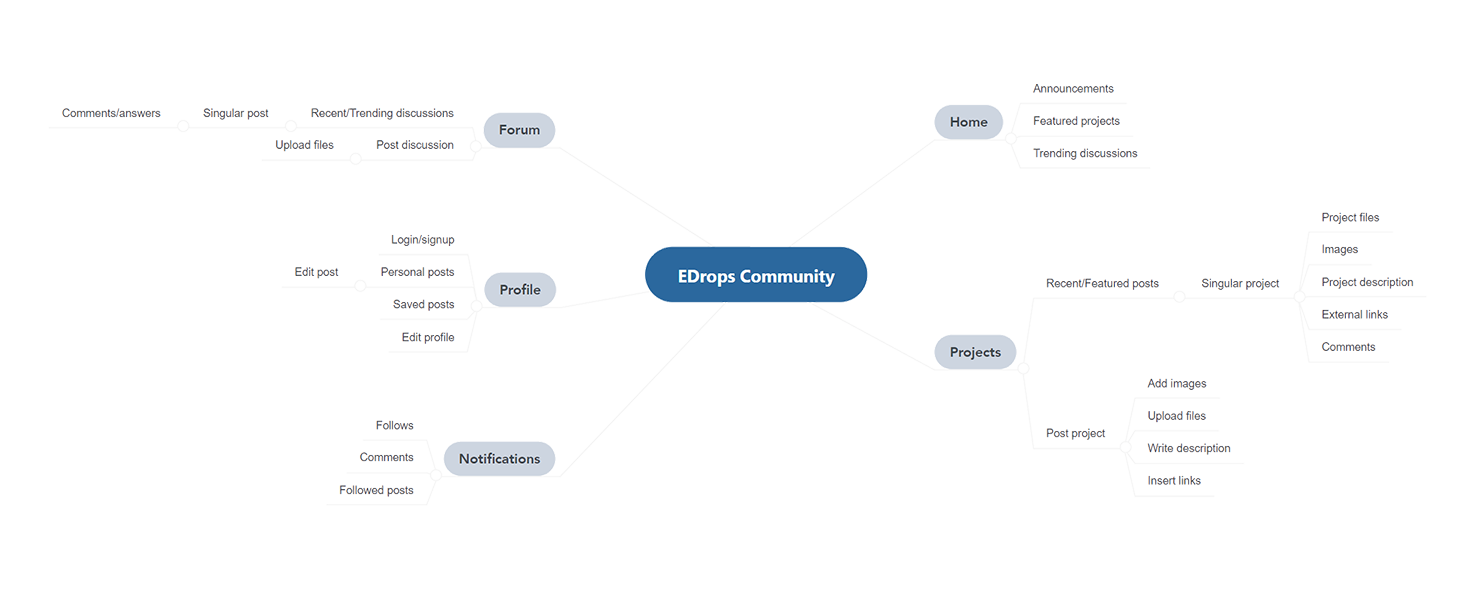
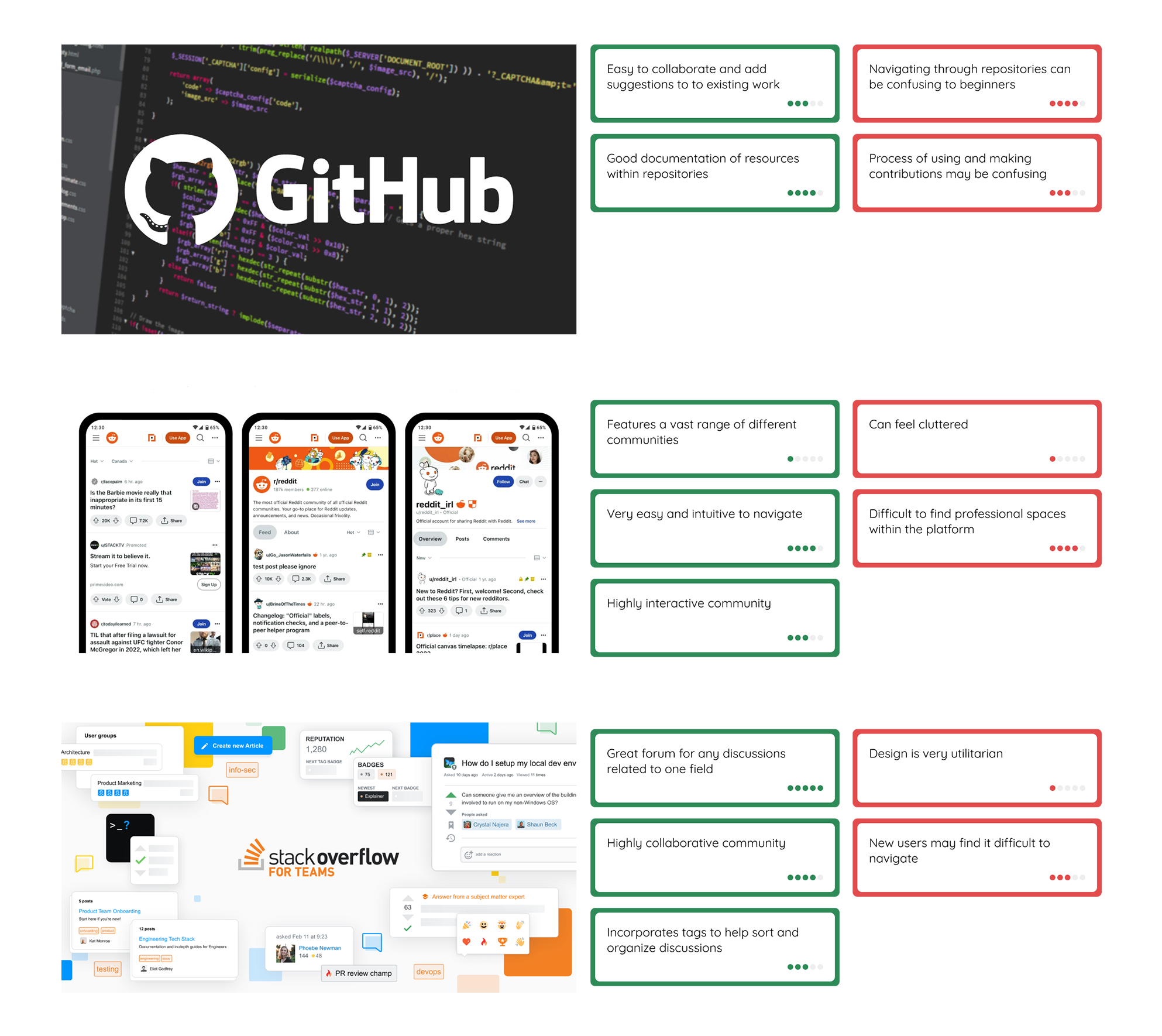
This project was my first exposure to working in a team alongside a developer and a project manager. Throughout the entire design process, I was in constant communication with the developer and manager to ensure that the designs were feasible and aligned with the project’s goals.
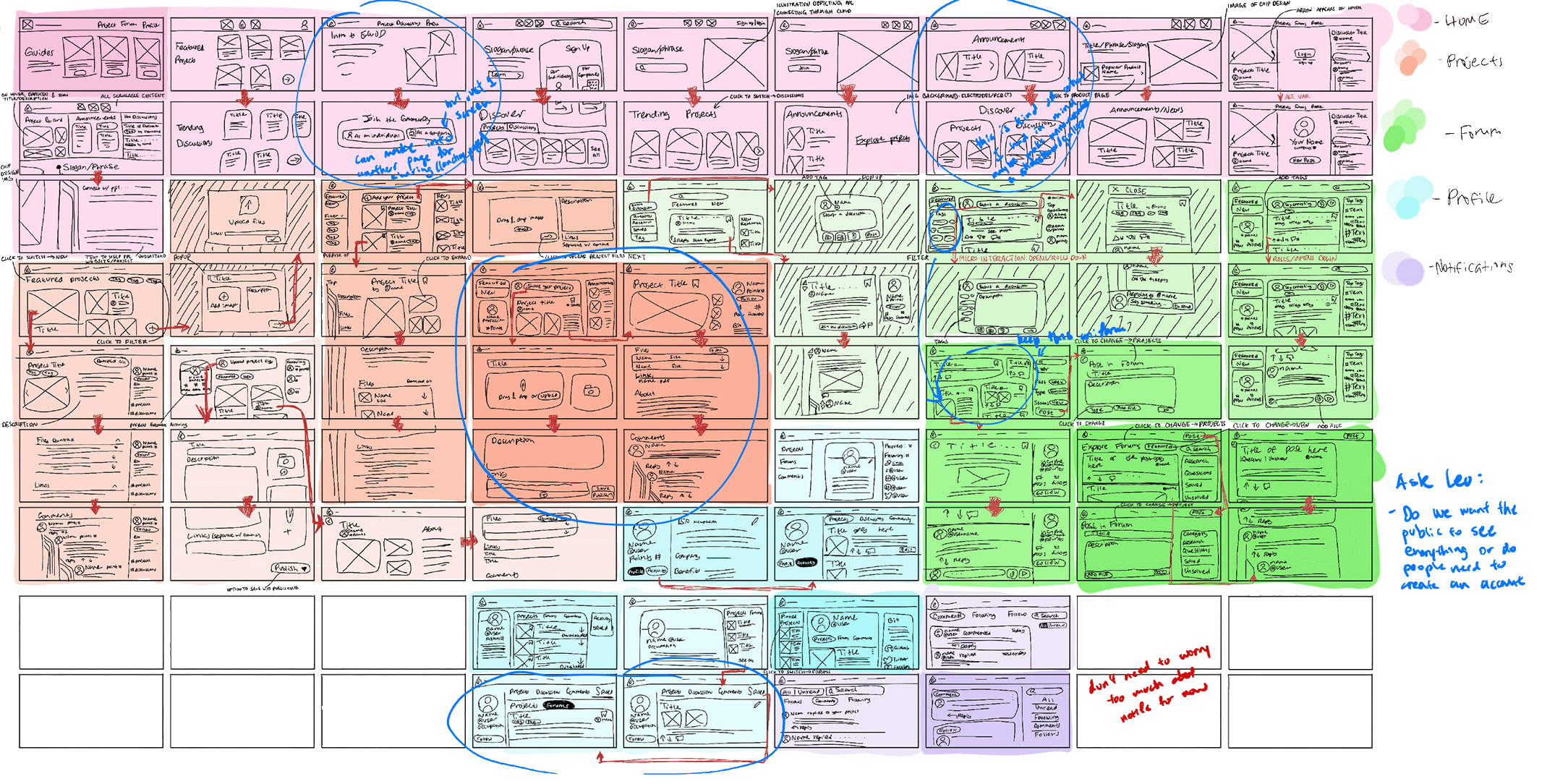
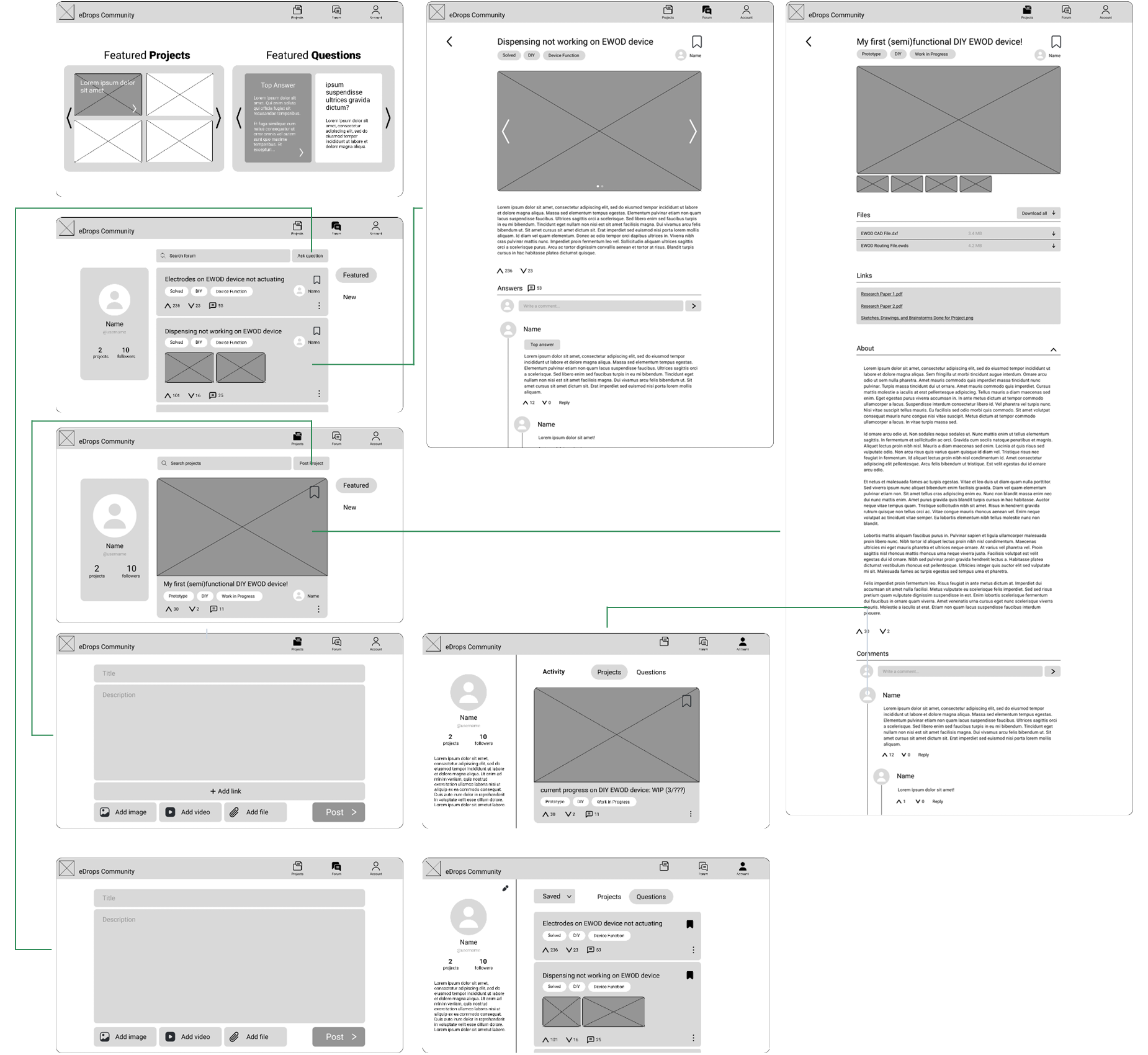
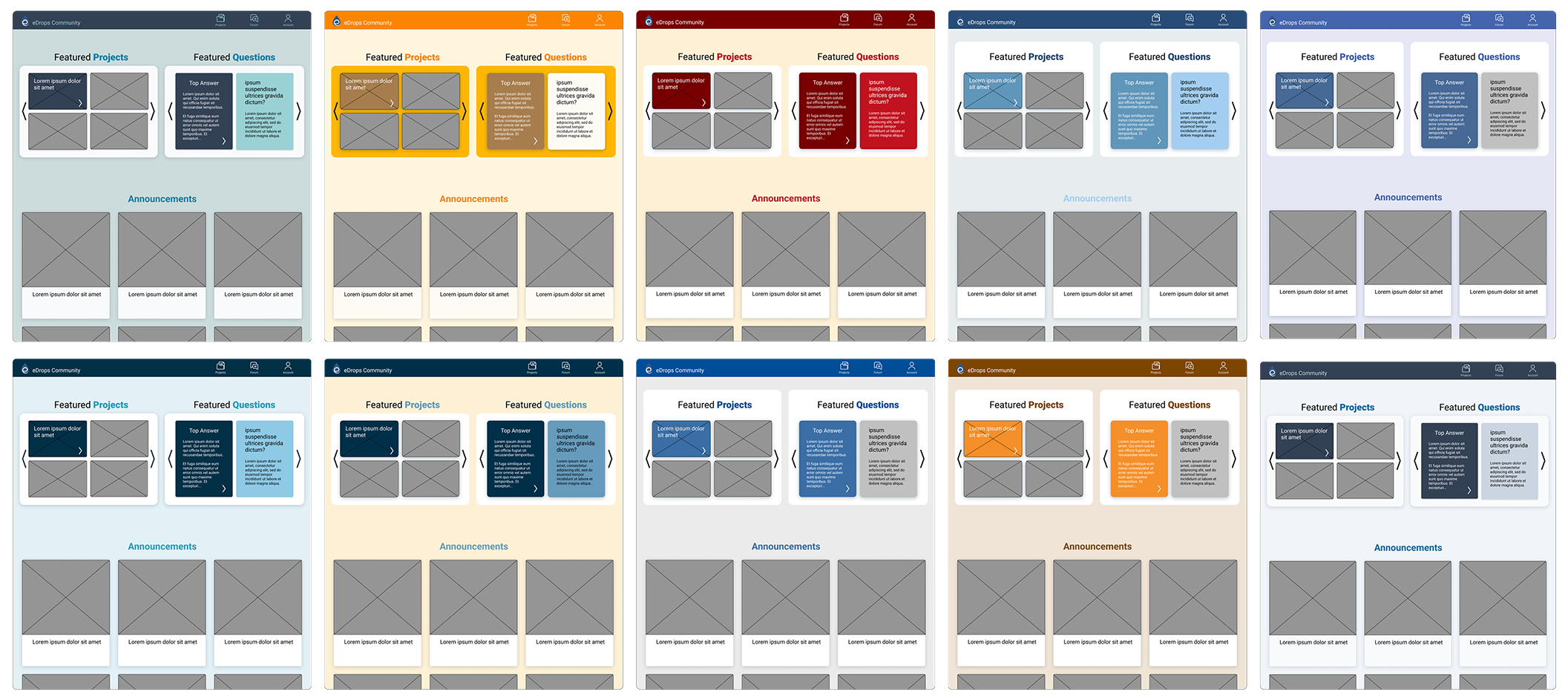
People interested in EWOD technology, ages 18-65
Roboto Regular
ABCDEFGHIJKLMNOPQRSTUVWXYZ
abcdefghijklmnopqrstuvwxyz
1234567890
Roboto Bold
ABCDEFGHIJKLMNOPQRSTUVWXYZ
abcdefghijklmnopqrstuvwxyz
1234567890
#334155
#CBD5E1
#F8FAFC
#F1F5F9
#0369A1
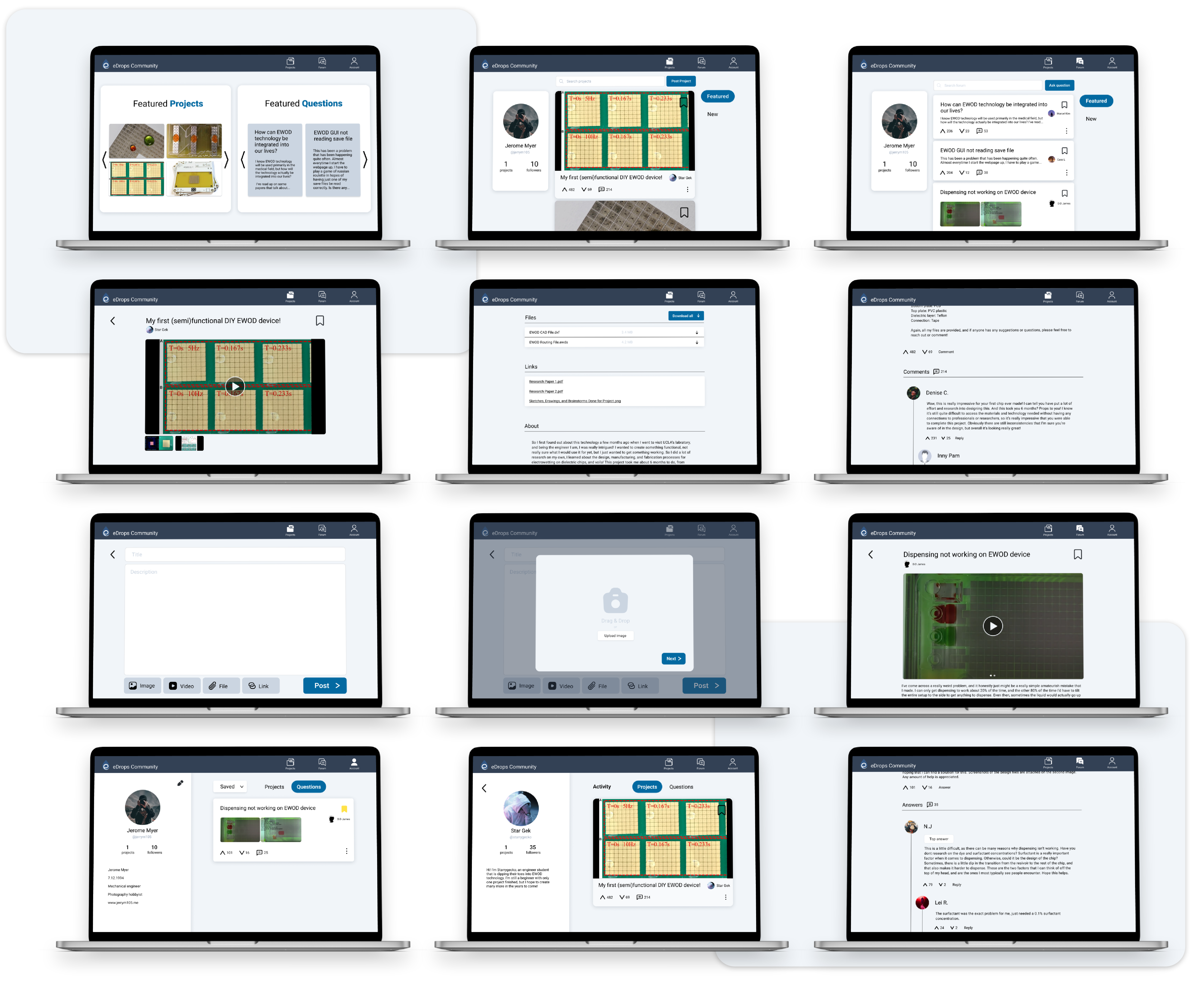
As of my current re-write of this case study (April 4, 2024), the eDrops Community website is still in development. But! At least it is now public, so feel free to check it out!
Just kidding! But in all seriousness, working with PhD students was a very eye-opening experience. While it may seem fun to go into research and just do a deep dive into a topic you’re passionate about, seeing it with my own eyes made me realize that it’s not all fun and games. I would watch the students stay in the lab day in and day out, conducting experiments and drafting up their own papers. Hearing about their experiences within academia made me realize doing a deep dive into a topic you’re passionate about comes with a lot of other responsibilities and stressors that I hadn’t considered before.
This was my first time working with a team on a project, and it was such an interesting experience. Before, I would be the one to make all the decisions and do all the work. In a team, it was more about collaboration and communication. Working with a developer ensured that my designs were feasible, and working with a project manager ensured that the project was on track according to their vision, rather than my own. All this meant that I had to be flexible and open-minded to other people’s ideas and opinions. I would be sending emails back and forth with the developer and manager, asking if certain designs were possible and which ones would be the best to implement. It was a lot of back and forth, but it was a great learning experience.
Every Friday we would have a group presentation to the professor to discuss our work throughout the week and next steps. It was definitely a nerve-wracking experience, especially since the professor was critical with his critiques, but it was a great way to practice my public speaking skills. While I wouldn’t have voluntarily put myself through this experience, I am immensely grateful that I had to go through the process of defending my thought processes and decisions. This taught me so much about how to present my work in a way that is understandable and engaging to others while cutting the BS.
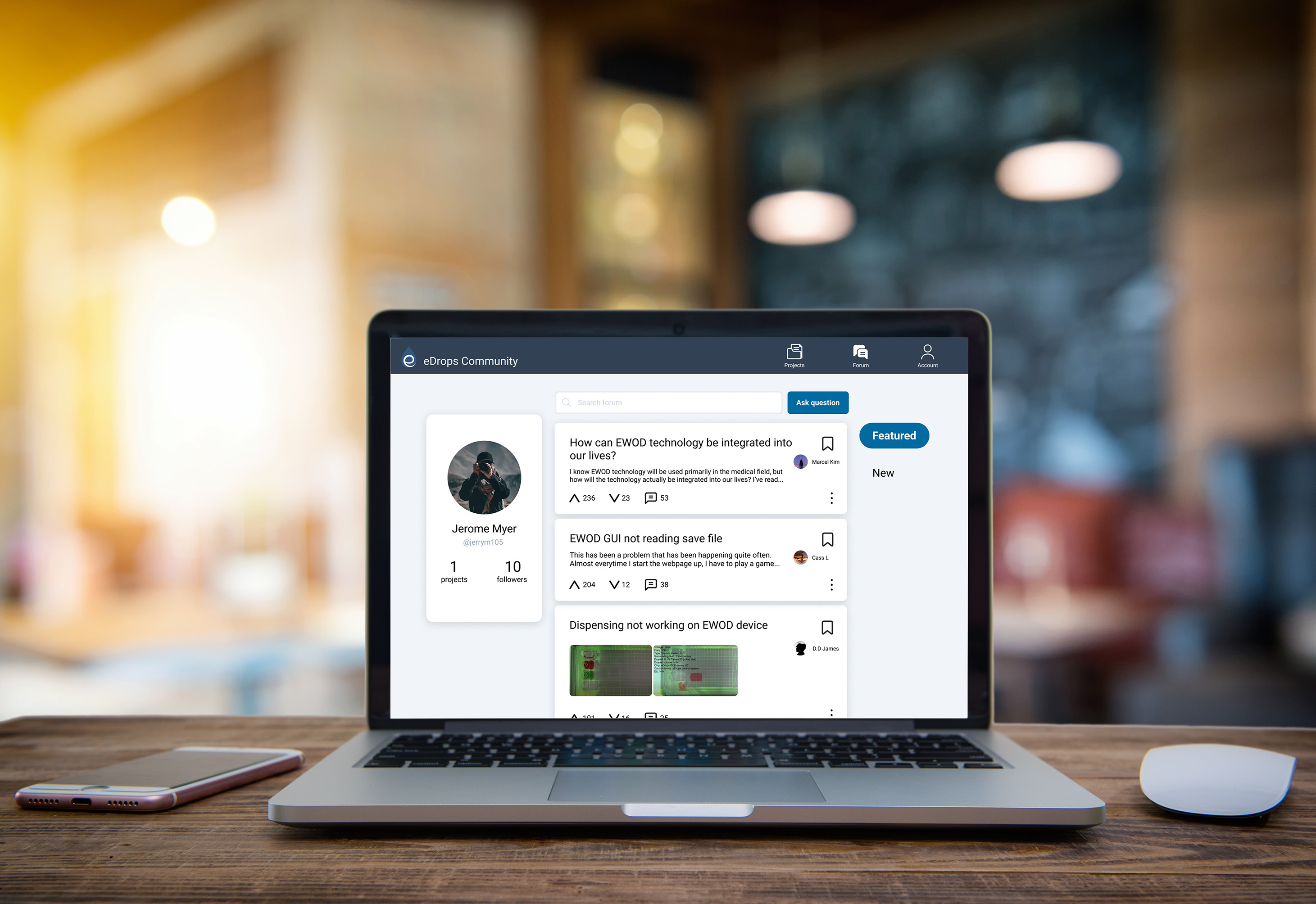
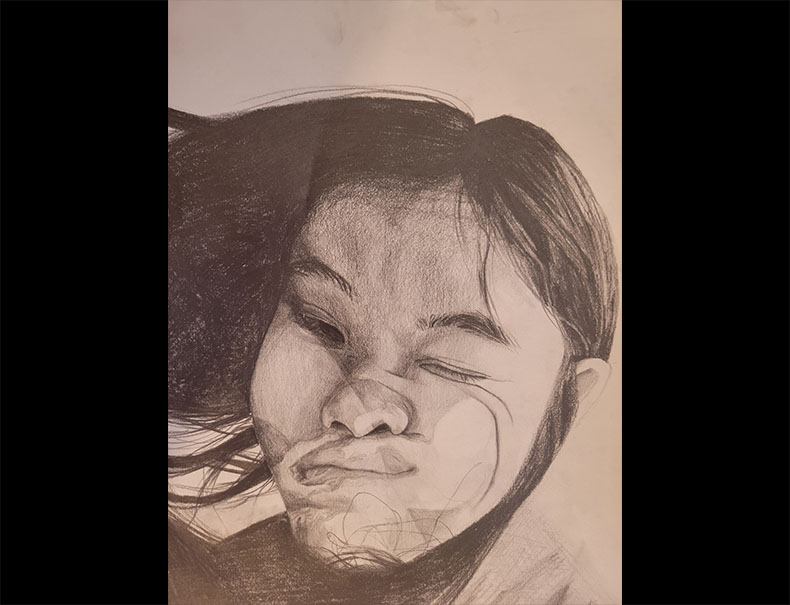
Graphite on bristol paper.